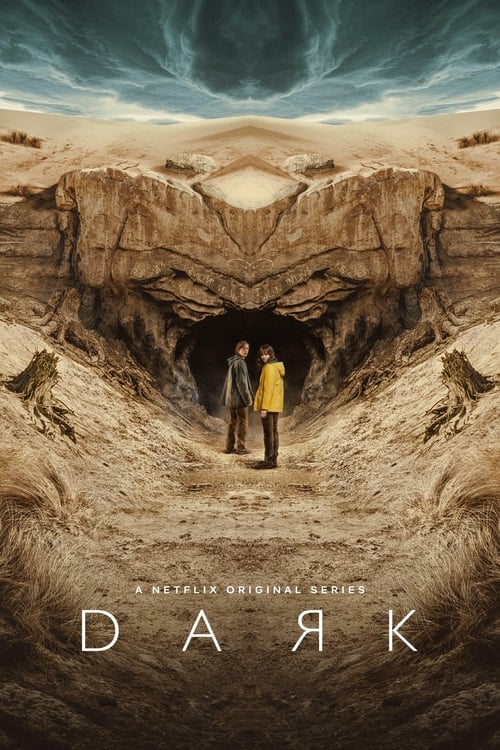
Ask Your Own Question
What is the plot?
In 1970s West Berlin, the story begins with a young East German man named Paul, who is a spy for the Stasi, the East German secret police. He is tasked with infiltrating the lives of West Berliners to gather intelligence. Paul is introduced as a skilled operative, but he struggles with the moral implications of his work. His mission is to gather information on a young woman named Lisa, who is a free-spirited and independent artist living in West Berlin.
Paul's first encounter with Lisa occurs at a party where he is posing as a West Berliner. He is immediately drawn to her charisma and artistic passion. As he observes her interactions with friends and fellow artists, he begins to feel conflicted about his mission. Despite his initial intentions, he finds himself genuinely interested in her life and ideals.
As Paul continues to gather information, he learns about Lisa's close relationship with her brother, who is involved in anti-government activities. This connection heightens the stakes of his mission, as he realizes that Lisa's brother could be a target for the Stasi. Paul is torn between his duty to report on her and his growing feelings for her. He starts to question the morality of his actions and the oppressive regime he serves.
In a pivotal scene, Paul witnesses a confrontation between Lisa and a group of government agents who are harassing her brother. This event solidifies his internal conflict, as he feels compelled to protect Lisa and her brother from the oppressive forces of the state. He decides to warn them about the impending danger, which marks a significant turning point in his character arc.
As Paul becomes more involved in Lisa's life, he begins to adopt her ideals and values. He attends her art exhibitions and engages with her circle of friends, further deepening his emotional connection to her. However, his dual life as a spy creates tension, as he must constantly balance his responsibilities to the Stasi with his desire to be with Lisa.
The plot thickens when Paul discovers that the Stasi is planning a major crackdown on dissidents in West Berlin. He learns that Lisa's brother is on their radar, and he must act quickly to protect them. In a tense sequence, Paul devises a plan to help Lisa and her brother escape the impending raid. He uses his insider knowledge to create a diversion, allowing them to slip away unnoticed.
As the raid unfolds, Paul faces a moral dilemma. He must choose between his loyalty to the Stasi and his newfound love for Lisa. In a heart-pounding moment, he decides to sabotage the operation, leading to a chaotic confrontation with his fellow agents. Paul fights to protect Lisa and her brother, showcasing his transformation from a loyal spy to a man willing to risk everything for love.
In the aftermath of the raid, Paul and Lisa's brother manage to escape, but Paul is left behind. He is captured by the Stasi and faces severe consequences for his betrayal. In a gripping scene, he is interrogated and tortured, revealing the extent of his internal struggle and the sacrifices he has made for love.
The season concludes with Paul in a dark place, grappling with the repercussions of his choices. He is torn between his past as a spy and his desire for a future with Lisa. The final moments leave viewers with a sense of uncertainty about his fate and the impact of his decisions on the lives of those he cares about.
What is the ending?
Is there a post-credit scene?
In "The Same Sky," there is no post-credit scene at the end of Season 1. The series concludes its narrative without any additional scenes after the credits, focusing instead on wrapping up the storylines of the main characters within the episodes themselves. The final moments of the last episode provide a sense of closure, emphasizing the emotional journeys and the fates of the characters, particularly in the context of the Cold War tensions and personal sacrifices they have made. The absence of a post-credit scene allows the audience to reflect on the themes of love, loyalty, and the impact of political ideologies without any further distractions.
What is the significance of the character of the spy, and how does his background influence his actions throughout the season?
The character of the spy, who is central to the narrative, is portrayed as a complex individual shaped by his past experiences in East Germany. His motivations are deeply rooted in the political climate of the time, as he grapples with loyalty to his country versus personal desires. His background as a former soldier and his emotional struggles with the oppressive regime drive him to take risks that put both his life and the lives of those he cares about in jeopardy.
How does the relationship between the main characters, including the spy and the woman he becomes involved with, evolve throughout the season?
The relationship between the spy and the woman he becomes involved with is fraught with tension and complexity. Initially, their connection is based on mutual attraction and shared experiences of living under a repressive regime. As the season progresses, their relationship deepens, revealing layers of trust and betrayal. The woman, who is also navigating her own struggles, becomes a pivotal figure in the spy's life, challenging his beliefs and forcing him to confront his own moral dilemmas.
What role does the Berlin Wall play in the characters' lives and decisions throughout the season?
The Berlin Wall serves as a powerful symbol of division and conflict in the characters' lives. It physically and emotionally separates families and lovers, influencing their decisions and actions. Characters are often seen grappling with the implications of the Wall, as it represents not only a physical barrier but also the ideological divide of the Cold War. The Wall's presence heightens the stakes for the spy and his love interest, as they navigate their relationship amidst the backdrop of a society torn apart by political strife.
How do the personal sacrifices made by the characters reflect the broader themes of loyalty and betrayal in the story?
Throughout the season, characters are faced with difficult choices that require personal sacrifices, reflecting the broader themes of loyalty and betrayal. The spy, for instance, must choose between his duty to his country and his growing feelings for the woman he loves. These sacrifices often lead to moments of intense emotional conflict, as characters weigh their personal desires against their obligations to their families and their country. The consequences of these choices resonate throughout the narrative, impacting not only their lives but also the lives of those around them.
What are the key turning points in the spy's journey that lead to his ultimate transformation by the end of the season?
Key turning points in the spy's journey include moments of crisis that challenge his beliefs and force him to reevaluate his role in the espionage world. One significant turning point occurs when he is faced with a moral dilemma that puts his loyalty to the test, leading him to question the very foundation of his mission. Another pivotal moment is his deepening relationship with the woman, which exposes him to the human cost of the political games he is involved in. These experiences catalyze his transformation, pushing him towards a path of self-discovery and a reevaluation of what it means to be loyal in a world filled with deception.
Is this family friendly?
"The Same Sky" is a drama set during the Cold War, and while it has a compelling narrative, it contains several elements that may not be suitable for children or sensitive viewers. Here are some potentially objectionable or upsetting aspects:
-
Violence and Threats: The show includes scenes of violence, including physical confrontations and threats that may be intense or disturbing.
-
Political Tension: The backdrop of espionage and the Cold War creates a tense atmosphere, with themes of betrayal and mistrust that may be unsettling.
-
Mature Themes: The series explores complex adult themes such as loyalty, sacrifice, and the moral dilemmas faced by characters involved in espionage.
-
Emotional Struggles: Characters experience significant emotional turmoil, including fear, anxiety, and the weight of their choices, which may be heavy for younger viewers.
-
Romantic Relationships: There are romantic subplots that may include mature content or implications that could be inappropriate for children.
-
Death and Loss: The narrative involves loss and the impact of death on characters, which can be emotionally challenging.
These elements contribute to a mature viewing experience, making it less suitable for a family-friendly audience.












































